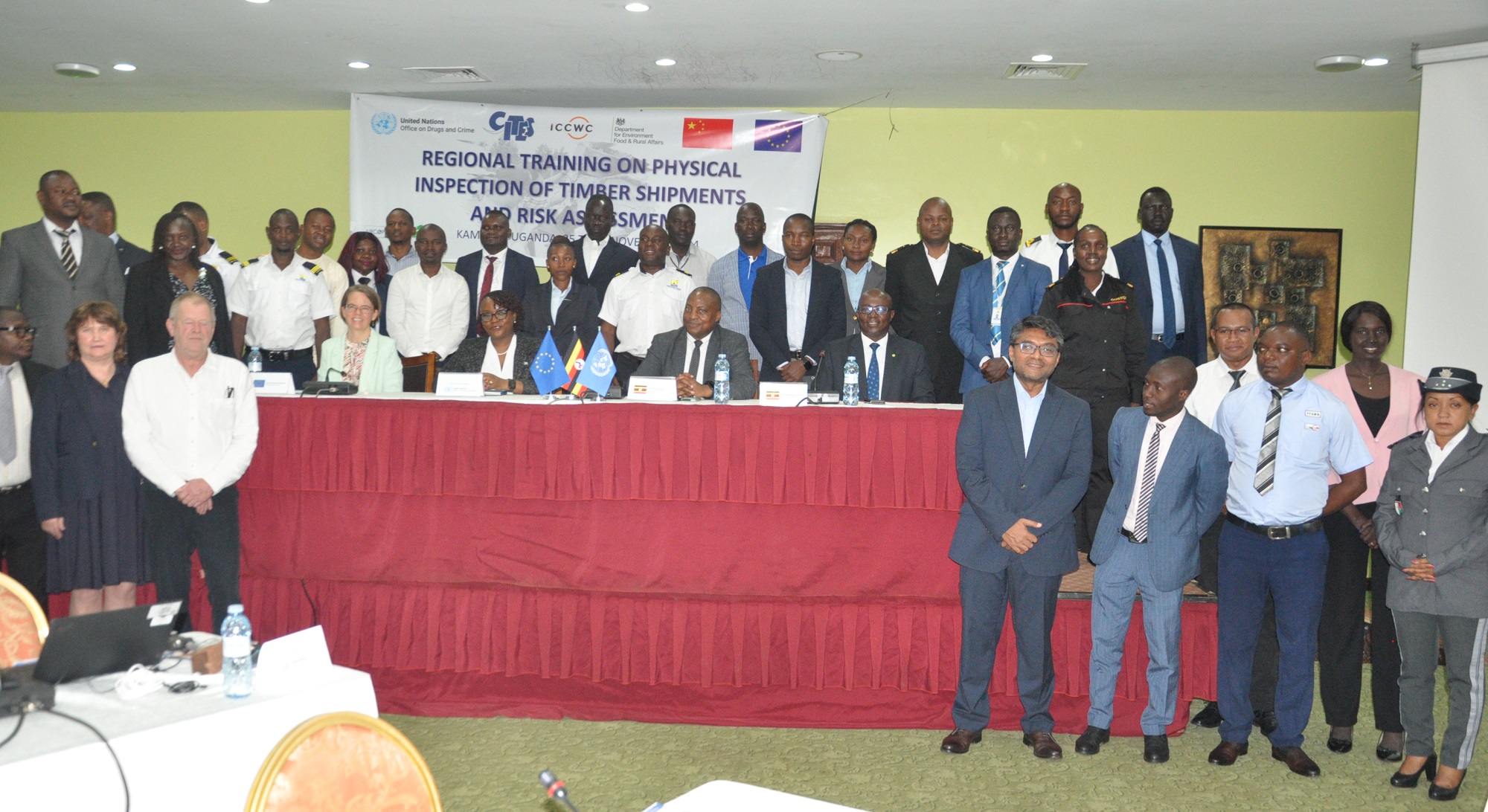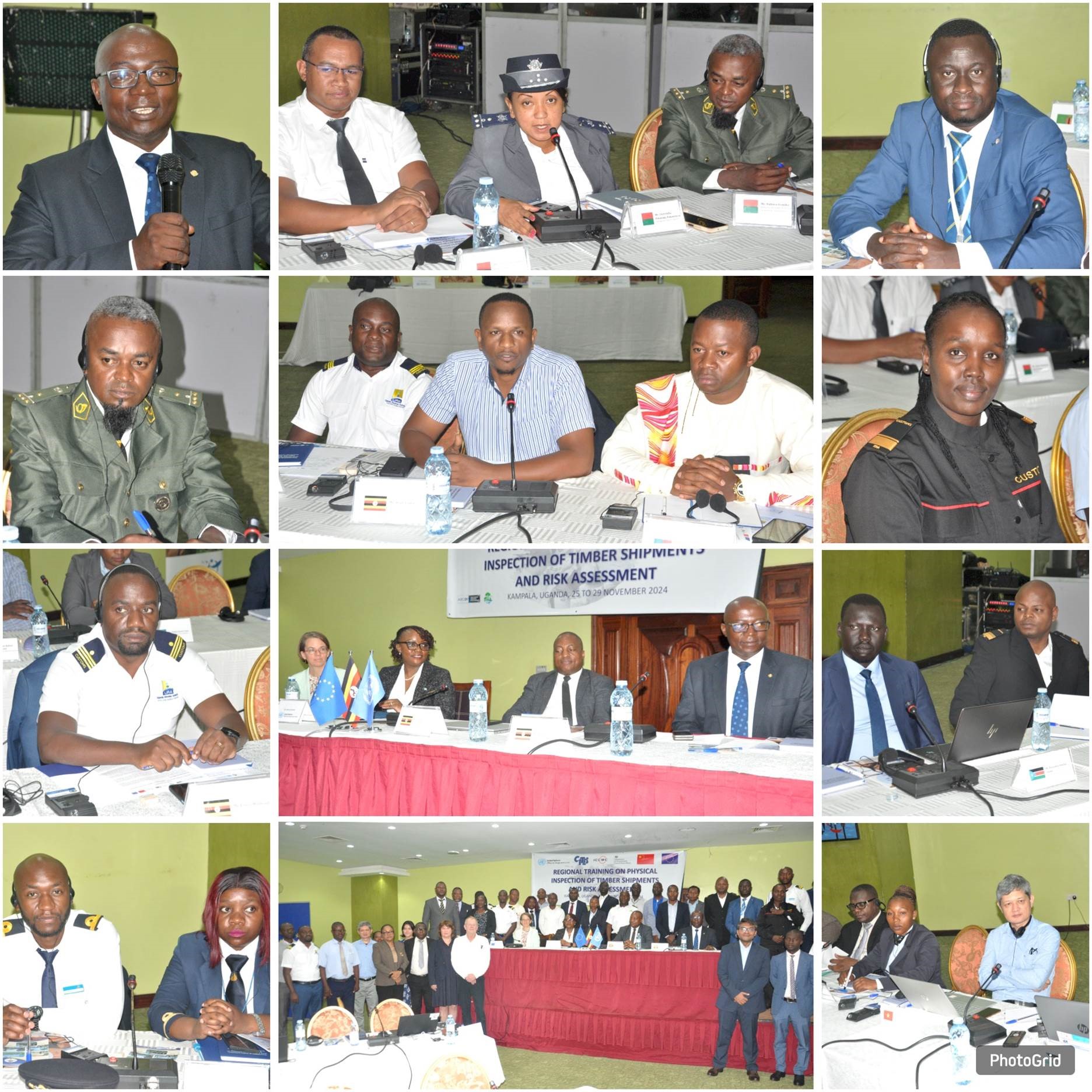
The United Nations Office on Drugs and Crime (UNODC) recently organised a specialized training on risk management and physical inspection of wood shipments for revenue officials from across the continent.
The week-long capacity building held at the Imperial Royale Hotel in Kampala attracted officials from Uganda, the Democratic Republic of Congo, Burundi, Cameroon, Gabon, Madagascar, Mozambique, Tanzania, Zambia, Kenya, Malawi, and South Sudan.
It sought to equip customs officials with the knowledge and skills to address illicit timber trade that is threatening Africa’s vast ecosystem.
Throughout the engagements, participants shared their experiences inspecting timber shipments and confronting forest crime. They also had the opportunity to learn more about evidence handling, identifying wood with an emphasis on native species, and the indicators of high-risk timber shipments.
Dr. Okaka Geoffrey, the Assistant Commissioner Field Services at URA, underscored the significance of the capacity building, stating that the knowledge drawn from the training will assist Uganda in creating sustainable enforcement structures at key customs stations.
“This will minimize the risk of shipping containers being exploited for illicit timber trafficking, transnational organized crime, and other forms of illegal activities,” Okaka stated.
This training is part of an initiative designed to help agencies fight illicit trade and secure the timber trade supply chain. It is coordinated under the Law Enforcement Assistance Programme for Reducing Tropical Deforestation (LEAP) and Container Control Programme (CCP) in collaboration with the World Customs Organization (WCO) and INTERPOL.
Okaka thanked these stakeholders for the technical assistance and capacity-building support that have helped Uganda in combatting illicit wildlife and timber trade.
By Jacinta Obore Mirembe






No Comments yet!